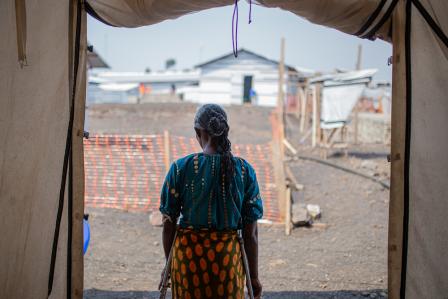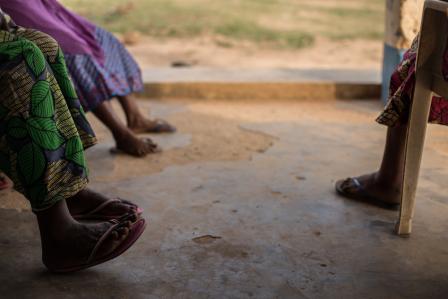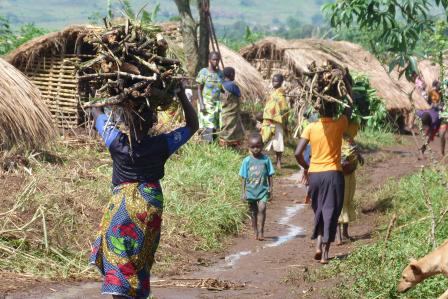DRC: Doctors Without Borders calls for urgent boost to support survivors of sexual violence
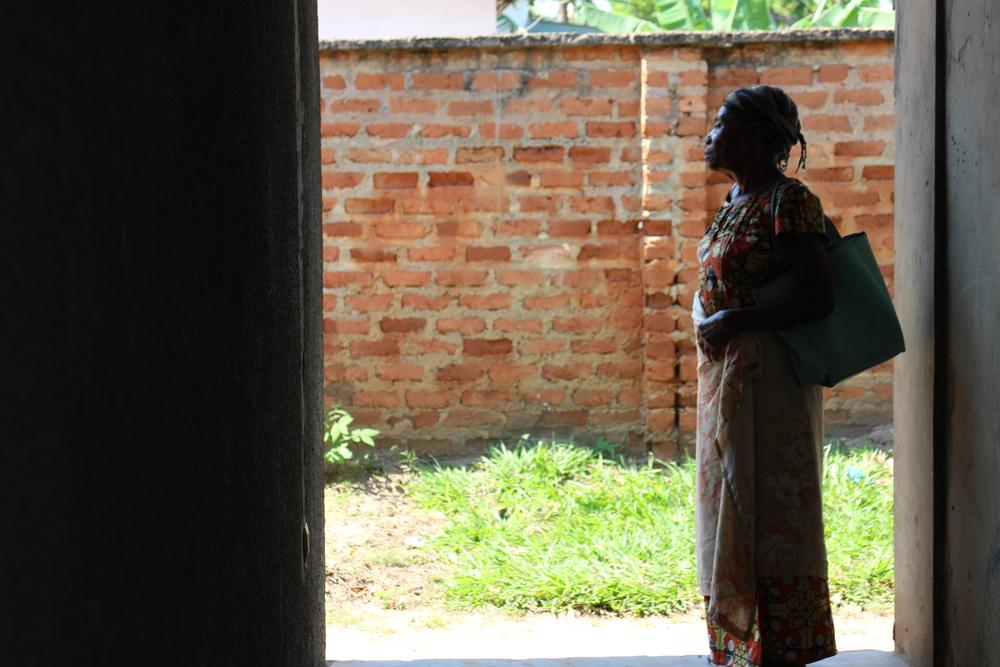
Since May 2017, Doctors Without Borders is providing free medical care and psychological support to sexual violence survivors in Kananga Provincial Hospital © Candida Lobes/MSF
KINSHASA, July 15, 2021 - In a new report, Doctors Without Borders/Médecins Sans Frontières (MSF) warns of the lack of support available for survivors of sexual violence in the Democratic Republic of Congo (DRC). Given the magnitude of such violence and its impact, Doctors Without Borders calls on the Congolese authorities and their partners to swiftly act in order to respond to the huge medical, legal, socioeconomic, and protection needs that we observe.
The figure is colossal. However, it is only the tip of the iceberg: in 2020, nearly 11,000 survivors of sexual violence were assisted with the support of Doctors Without Borders teams in six of the 26 provinces of the DRC, approximately 30 per day.
The data collected by Doctors Without Borders in 2020 shows a worrying picture of the physical and psychological state of patients treated for sexual violence: infections, unwanted pregnancies; physical injuries resulting from the violence; severe psychological trauma, including among minors who represented one fifth of patients treated by Doctors Without Borders in 2020.
The extent of sexual violence in the DRC is recognized and denounced by many national and international actors. Yet, this condemnation is not followed by sufficient actions, whether in terms of prevention, care or protection. Our teams on the ground are dialy witnesses that needs are far from being met.Juliette Seguin, DRC head of mission
Published on July 15, the Doctors Without Borders report stresses the shortcomings in the provision of care to survivors: medical staff inadequately trained, lack of medicines and medical supplies; unavailability of in socioeconomic and legal support....
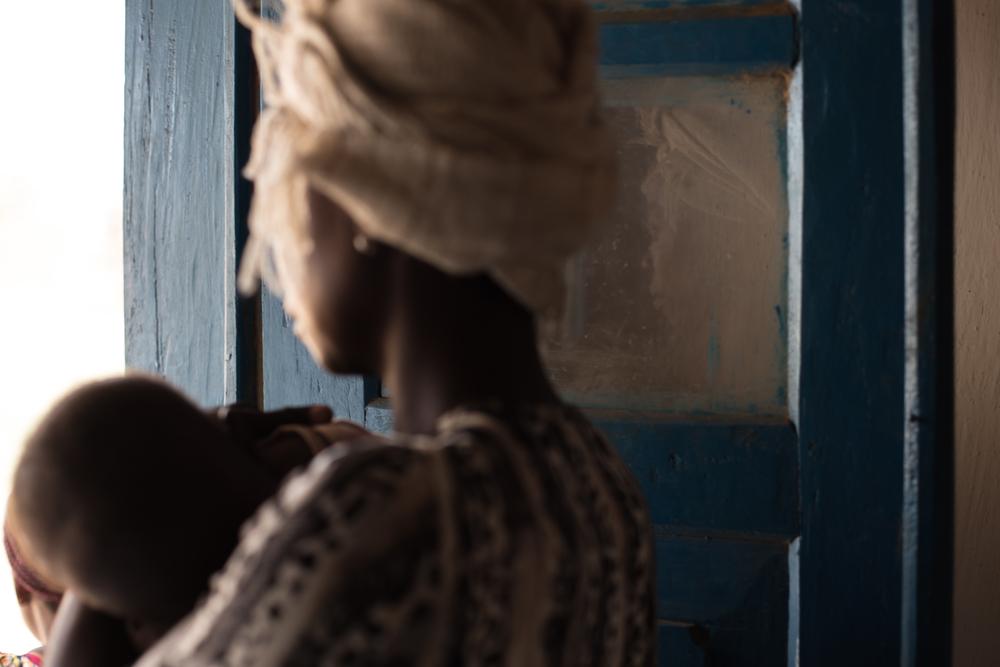
B.S., victim of sexual violence, 28 years old. DRC, 2018. © MSF/Carl Theunis
If the emergency is above all a medical one, medical consultations carried out by Doctors Without Borders staff also reveal a lesser-known impact of sexual violence; its lasting economic and social impact on survivors. Following their aggression, many victims are too scared to go back to the fields, or are rejected by their communities, exacerbating their vulnerability and poverty while few reinsertion programmes are available for them.
The immediate and long-term needs are significant but approaches and funding that would allow them to be met are severely lacking. Last year, for the DRC, less than 6% of international funding requested to respond to humanitarian health needs was disbursed, and 18% of the amount requested for the protection of populations and human rights. This trend continues in 2021. Beyond funding, some innovative approaches adapted to the local context are not implemented. The resulting lack of support constitutes a double penalty for survivors.Juliette Seguin, DRC head of mission
The shortcomings identified by Doctors Without Borders in the support to survivors mirrors the weakness of the response to gender-based violence (GBV) in the country: in the first half of 2020, the United Nations estimate that barely one in four victims of GBV had access to medical care, 5% to psychosocial assistance, 15% to legal assistance, and only 0.5% of socioeconomic reintegration.
The Doctors Without Borders report therefore calls on the Congolese authorities, civil society, and their international partners to redouble their efforts to ensure comprehensive and good quality care for survivors of sexual violence –medical, psychological, socioeconomic, and legal support. These efforts must guarantee better access to urgent and long-term programmes, whether cases are linked to conflict or not and whether the aggression took place in a conflict zone or in a zone considered ‘more stable.’
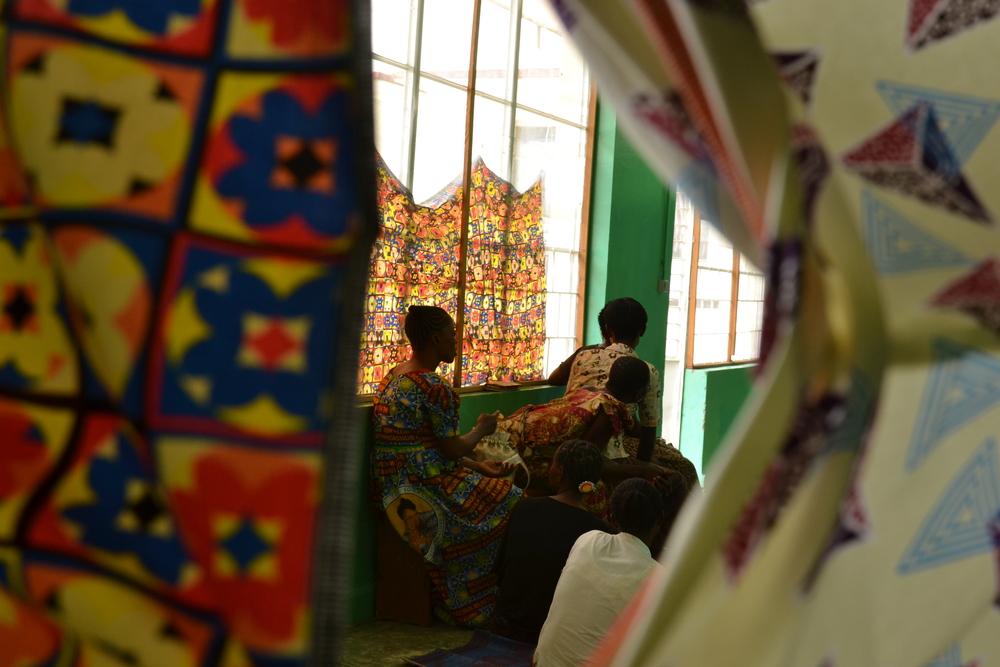
Democratic Republic of Congo, 2017 © Candida Lobes/MSF
The shortcomings identified by Doctors Without Borders in the support to survivors mirrors the weakness of the response to gender-based violence (GBV) in the country: in the first half of 2020, the United Nations estimate that barely one in four victims of GBV had access to medical care, 5% to psychosocial assistance, 15% to legal assistance, and only 0.5% of socioeconomic reintegration.
The Doctors Without Borders report therefore calls on the Congolese authorities, civil society, and their international partners to redouble their efforts to ensure comprehensive and good quality care for survivors of sexual violence –medical, psychological, socioeconomic, and legal support. These efforts must guarantee better access to urgent and long-term programmes, whether cases are linked to conflict or not and whether the aggression took place in a conflict zone or in a zone considered ‘more stable.’
The narrative of sexual violence as a 'weapon of war' tends to erase the fact that this violence is also perpetrated by unarmed men and in more stable regions where few actors are present to offer support. While troop movements and fighting clearly increase the number of sexual assaults, these are also perpetrated by people not bearing arms, and their victims are equally in need of care, support and protection.Juliette Seguin, DRC head of mission
In 2020, Doctors Without Borders teams provided care for 4,078 victims of sexual violence in North Kivu; 3,278 in Kasaï-Central; 1,722 in Maniema; 907 in South Kivu; 768 in Ituri, and 57 in Haut Katanga.
Doctors Without Borders teams carry out medical interventions in 21 provinces of the DRC, providing medical and psychological care in six of them: Ituri, Kasaï-Central, North Kivu, South Kivu, and Maniema.
